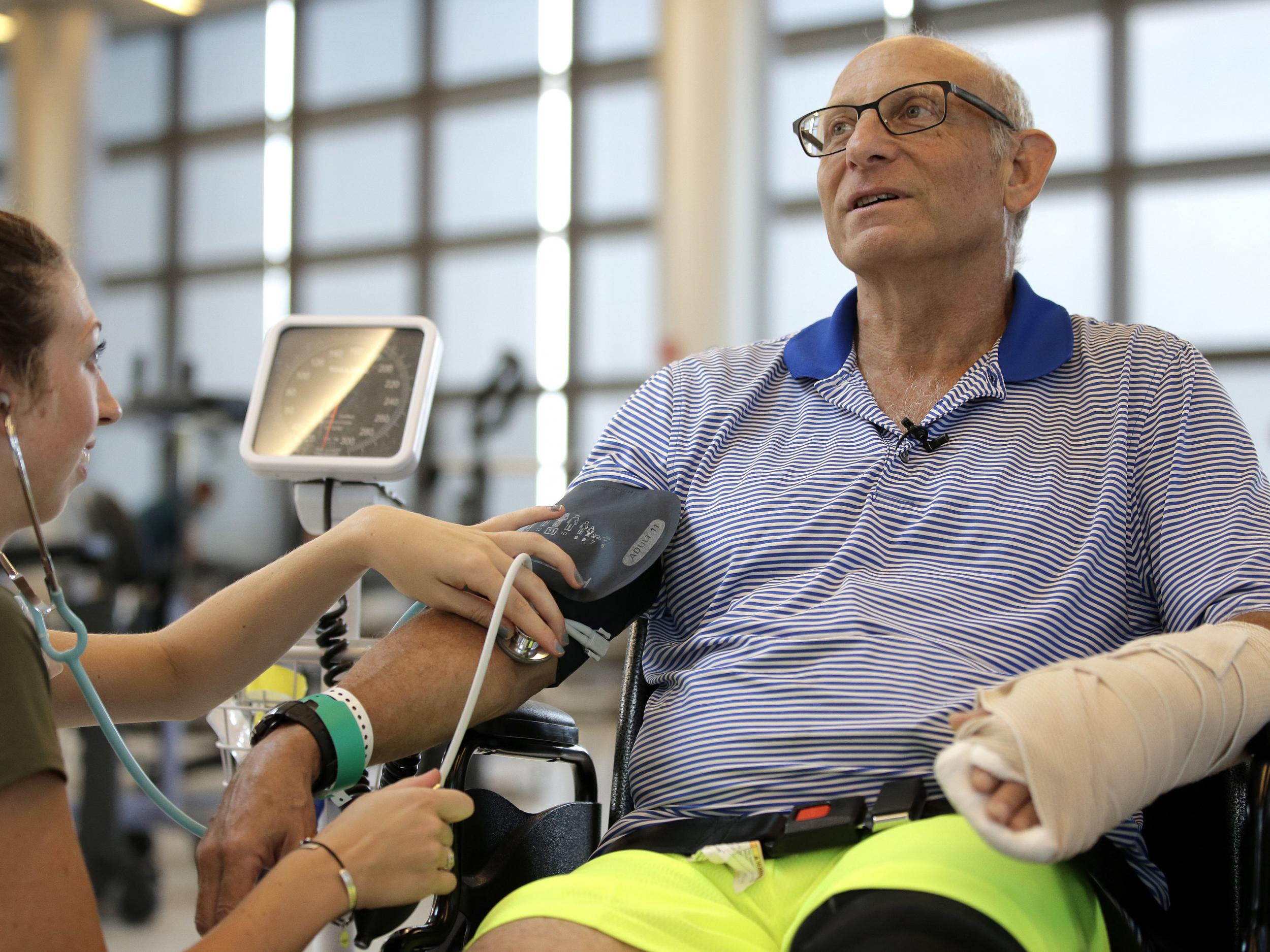Man punches shark in gills to escape after it sinks teeth into his leg in sea off Cape Cod
Lytton said he knew gills were weak point from watching nature documentaries

Your support helps us to tell the story
From reproductive rights to climate change to Big Tech, The Independent is on the ground when the story is developing. Whether it's investigating the financials of Elon Musk's pro-Trump PAC or producing our latest documentary, 'The A Word', which shines a light on the American women fighting for reproductive rights, we know how important it is to parse out the facts from the messaging.
At such a critical moment in US history, we need reporters on the ground. Your donation allows us to keep sending journalists to speak to both sides of the story.
The Independent is trusted by Americans across the entire political spectrum. And unlike many other quality news outlets, we choose not to lock Americans out of our reporting and analysis with paywalls. We believe quality journalism should be available to everyone, paid for by those who can afford it.
Your support makes all the difference.A man bitten by a shark off Cape Cod this month said on Tuesday that he escaped by punching the powerful predator in the gills after it clamped down on his leg.
In his first interview since the attack on 15 August, William Lytton said he'd been swimming in about “8 to 10 feet” (2.4 to 3 metres) of water off Truro, Massachusetts, when he felt an incredible pain shoot through his left leg and quickly realised he was being attacked by a shark.
The 61-year-old neurologist from Scarsdale, New York, said he gave the animal a strong smack in the gills with his left hand, a move that probably saved his life but also resulted in some torn tendons.
He now sports an arm cast as well as bandages and a brace around most of his left leg.
“I initially was terrified, but, really, there was no time to think,” he said, recounting the ordeal following a physical therapy session at Spaulding Rehabilitation Hospital in Boston, where he's been since Sunday.
“It doesn't feel like I did anything heroic. A lot of this was luck.”
Mr Lytton said he must have recalled from nature documentaries that the gills were one of the most vulnerable parts of the shark.
After the animal broke its grip, he took a few strong stokes back to shore where he shouted for help.
Someone alerted his wife, who had been on the beach with their two young daughters and family friends.
Other people at the beach — including off-duty nurses and other medical professionals — helped stem the bleeding and carried him up the dunes to the beach car park as he started to lose consciousness from the blood loss.
“The pain was really excruciating,” Mr Lytton said. “I remember the helicopter landing and then nothing for the next two days.”
Mr Lytton was airlifted to Tufts Medical Center in Boston where he said he was placed into a two-day coma, underwent six surgeries and had nearly 12 pints of blood pumped into him.
The professor at SUNY Downstate Medical Center in Brooklyn said he's grateful to be alive, but knows he has weeks more of rehab — and at least one more surgery — before he's back on his feet.
The shark, fortunately, missed critical nerves and veins and didn't leave major bone damage, though pieces of shark teeth were cleaned out of his wounds and his bandages cover “hundreds” of sutures used to stitch muscles and skin back together, Mr Lytton said.
“It looks very artistic,” he said.
Mr Lytton was transferred on Sunday to Spaulding, a rehabilitation hospital where many of the most severely injured survivors of the 2013 Boston Marathon bombing were treated. He is expected to be there around two weeks before eventually returning to New York for possibly more rehab.
Mr Lytton said he isn't in any rush to wade back into the ocean waters off Cape Cod, where he spends nearly every summer doing research.
“It's kind of terrifying thinking about it,” he said. “I know it's not the best thing to say, but I didn't like sharks before, and like them even less now.”
Mr Lytton's wife, June Lytton, said she hopes the attack is a warning for others to take shark safety seriously.
“It's still not real to me,” she said on Tuesday, standing at her husband's side. “It happened so close to shore. I never thought that could happen.”
State biologists are working to determine what type of shark was involved in the attack, which was the first in Massachusetts waters since 2012. The state's last fatal attack was in 1936.
Meanwhile, shark sightings have continued to close Cape Cod beaches as the tourist destination prepares for Labour Day weekend and the last big hurrah of the summer.
AP
Join our commenting forum
Join thought-provoking conversations, follow other Independent readers and see their replies
Comments